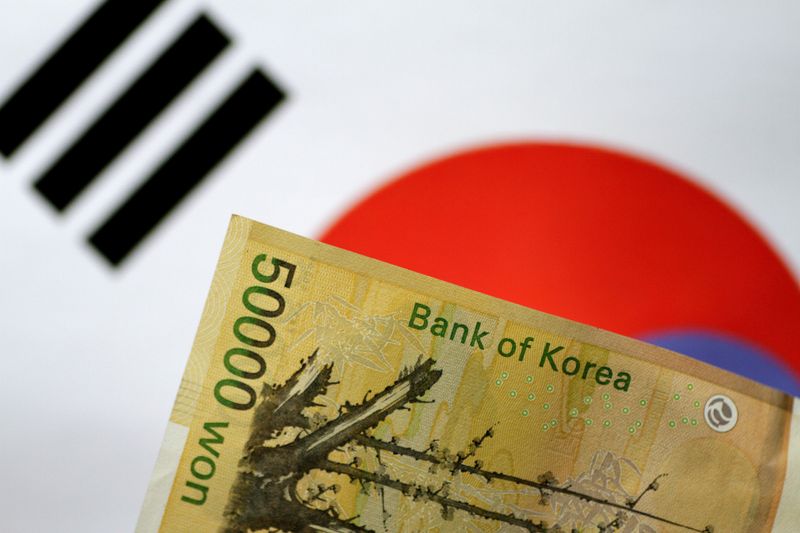
By Gertrude Chavez-Dreyfuss
NEW YORK (Reuters) -The South Korean gained got here off a greater than two-year low in opposition to the greenback on Tuesday, whereas change traded funds linked to South Korean shares equally reduce losses after President Yoon Suk Yeol stated he would carry a martial legislation he had imposed simply hours earlier than.
Yoon’s martial legislation declaration was unanimously voted down by 190 lawmakers in parliament, along with his personal social gathering urging him to carry the decree. Underneath South Korean legislation, the president should instantly carry martial legislation if parliament calls for it by a majority vote.
The South Korean unit fell to as little as 1,443.40 gained per greenback, the bottom since October 2022, within the aftermath of Yoon declaring martial legislation. It was final down nearly 1% at 1,418.18.
“It is a very complicated scenario,” stated Marc Chandler, chief market strategist at Bannockburn Foreign exchange in New York. However on the finish of the day, he famous that South Korea’s information is native and has restricted impression.
“Our company shoppers shouldn’t have Korean gained publicity for a few causes. One, the Korean gained is a restricted foreign money. And second, many of the commerce between the U.S. and South Korea is carried out in U.S. {dollars}.”
Yoon earlier stated he had no selection however to resort to such a measure with the intention to safeguard free and constitutional order, saying opposition events have taken the parliamentary course of hostage to throw the nation right into a disaster.
Shares listed abroad swooned earlier, however are actually recouping a few of their losses. The MSCI South Korea ETF was off its lows, although nonetheless final down 0.9% at 1,417.07 gained , whereas the Franklin South Korea ETF was 1.1% decrease.
With losses of greater than 9% up to now this 12 months, the gained is certainly one of Asia’s worst performers and has been persistently underneath strain because the Financial institution of Korea reduce charges aggressively to help the economic system and as traders fled a market they see as uncovered closely to exports and to U.S. commerce tariffs on China.

“The Korean gained is already underneath strain from the looming risk of tariffs and their detrimental impression on export-driven economies,” stated Rong Ren Goh, a portfolio supervisor within the fastened revenue staff at Eastspring Investments in Singapore.
“This newest growth is prone to exacerbate the foreign money’s weak point, encouraging speculators to make use of the gained as a high-beta proxy for expressing tariff-related dangers.”